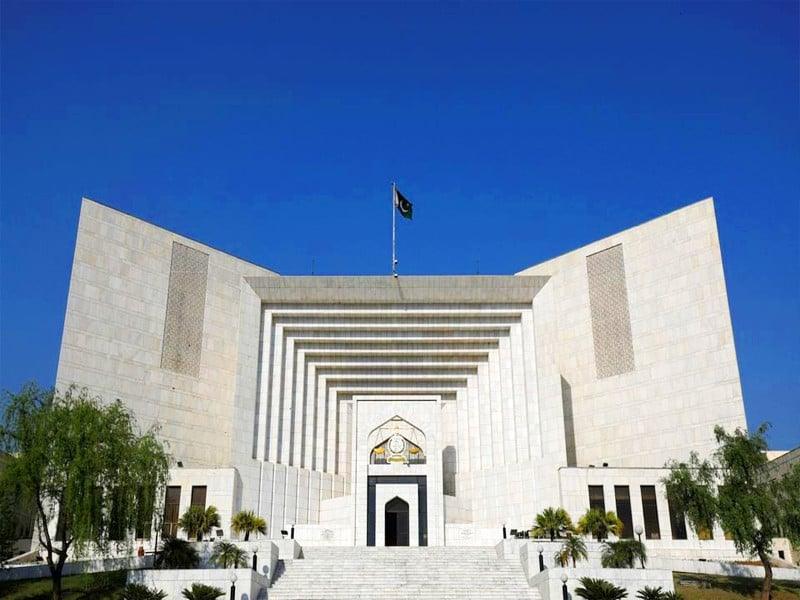Justice Jamal Khan Mandokhail said on Wednesday that all five judges in the Supreme Court were unanimous in their decision that civilians cannot be corrected in military courts.
He made these comments during the hearing of an intra-court appeal that challenged the trial against civilians in military courts. Justice Mandokhail is part of a seven-member constitutional bench that oversees the appeal, which also includes Justice’s Amin-out-Din Khan, Muhammad Ali Mazhar, Hassan Azhar Rizvi, Musarat Hilali, Naeem Akhtar Afghan and Shahid Bilal Hassan.
During the case, lawyer Faisal Siddiqui claimed that there had been three separate decisions from a five-member bench regarding military courts.
He pointed out that Justice’s Ayesha Malik, Muneeb Akhtar and Yahya Afridi had written individual decisions, but all judges agreed on core observations. Siddiqui emphasized that when the judges’ decisions are in line, but their reasoning differs, all the reasons are considered part of the overall decision.
However, he maintained that all justice agreed on the central question that civilians should not be corrected under military jurisdiction.
Siddiqui explained that when different judges write separate opinions in the same case, their reasoning collectively constitutes part of the final judgment. He rejected arguments that suggested that the decisions were shared.
Justice Muhammad Ali Mazhar pointed out that the judges had written detailed decisions rather than additional notes.
Justice Mandokhail reinforced the argument by stating that all five judges were in agreement against military lawsuits for civilians.
An important point in violation of the case is whether the anti-terrorism courts (ATCs) had formally approved the transfer of civilian suspects to military custody.
Justice Naeem -Afghan questioned whether there was an official judicial decision that allows such transfers.
Siddiqui replied that although some transfer orders existed, they did not include a clear justification.
He also argued that a suspect could only be transferred to military authorities after formal charges had been framed against them.
The lawyer emphasized that the transfer of civilians to military custody based solely on a police report or an initial complaint was legally questionable.
Siddiqui claimed that the Supreme Court could declare civilian military litigation constitutionally without necessarily reducing sections of the Army Act.
He said the court had previously handed down in similar cases that a law could remain in place, while certain applications of it were considered illegal.
Justice Muhammad Ali Mazhar also commented on the limitations of appeals in military litigation, noting that those who were already tried under military jurisdiction could not get their cases to practice in civil courts.
He emphasized that military courts could not judge individuals under the law of official secrets and then refer the matter back to anti-terrorism courts.
Justice Mandokhail noted that the Army Act did not have a formal provision for registration of first information reports (FIRs) against civilians.
Siddiqui agreed and argued that before any civilian could be placed under military custody, a magistrate should review the case and decide whether to continue in accordance with the military or anti-terrorism law.
The Supreme Court bench continued its considerations of the case, with justice Aminuddin Khan that courts should decide their own jurisdiction before continuing with any case.
Siddiqui warned that if the right to appeal was limited in these cases, it could set a dangerous legal precedent.
He also rejected the argument that because there was originally no objection, the court could overlook jurisdictive concerns.
The court postponed the hearing with further arguments expected in the next session.
During yesterday’s consultation, the Supreme Court in Pakistan referred former army chief (Ret.) Qamar Javed Bajwa’s service expansion while hearing a case of military lawsuits for civilians, and rendered the debate on former legal precedent.



